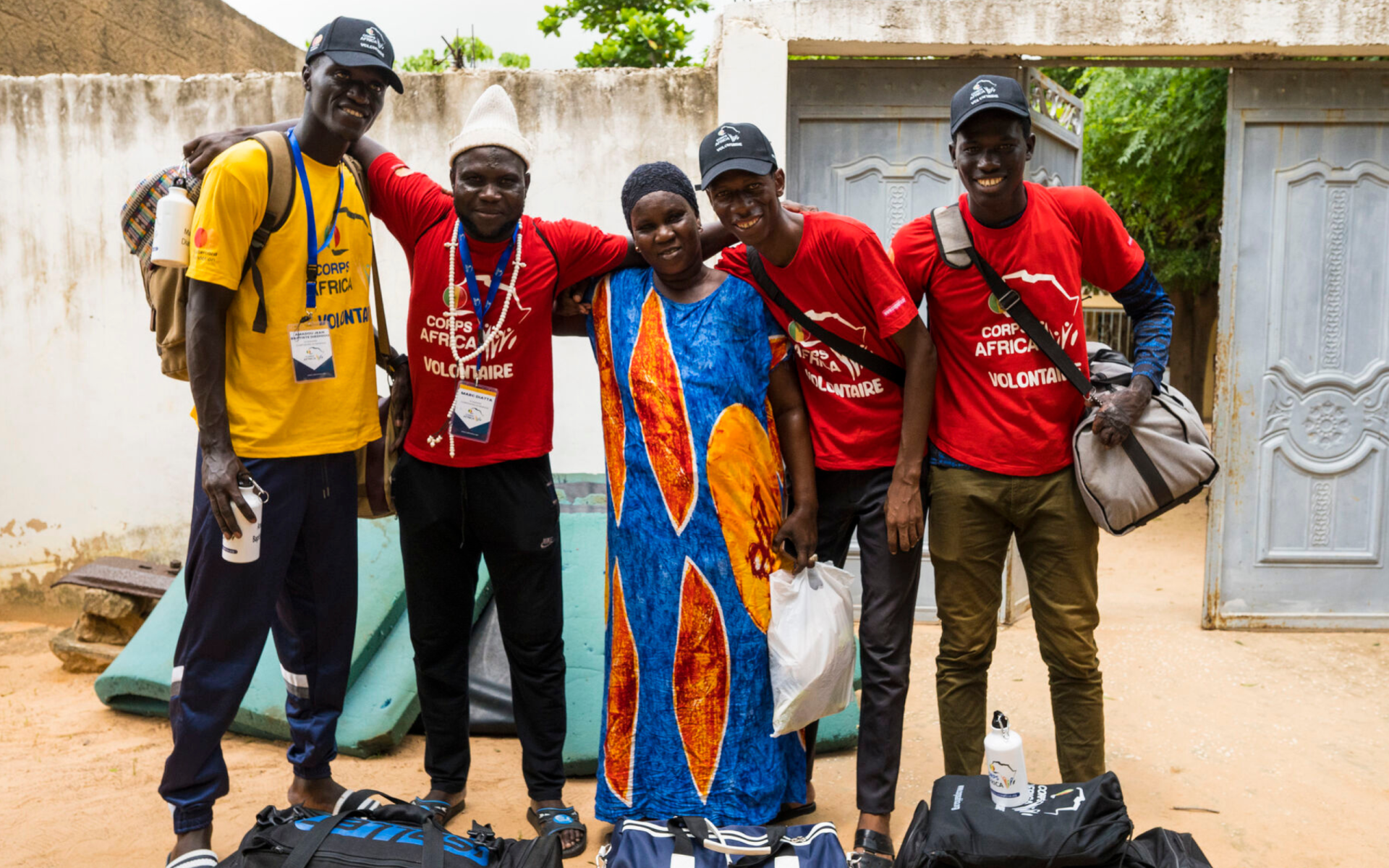Recently I just took a giant leap in my life by moving from my home country Malawi in the southern part of Africa to Sénégal, a country to the far west of Africa. To tell the truth, it was a stressful moment with the thought of missing my family, friends, and the culture that I was familiar with, but I just had to embrace the journey ahead. Before coming to Sénégal I used to ask my colleagues who were exchange volunteers at that time in Malawi more about Sénégal and they really helped me to prepare myself mentally and psychologically, and also some friends of mine who once served in sénégal as an exchange volunteer told me “ Dzineso if you want to learn wolof with ease, stick to the kids”.
Fast forward, I arrived in Sénégal and stayed in Dakar, then we moved to Tiénaba, a township in the Ties region. I was surprised by how my host family, the Diop family, welcomed me. My host mother has a fish and vegetable business and every morning I could go and help her in any way I could, this gave me a chance to practice my Wolof, and also I came to know how to have a customer and seller conversation, for instance, these were common greetings at my mother’s selling point, “assalamualaikum, nanga def” meaning “hello, how are you doing” and one would answer “maangi fi rekk” meaning “I am fine” and I also came to know some names of vegetable names like “tamaate for tomato”, “ñebbe for beans”, “jaxato for bitter tomato”, “supome for cabbage”, “batañse for eggplant”, “kañja for okra”, “ñambi for cassava or yam” and “soble for an onion” just to mention a few of them.
One morning while I was helping my host mother at a her business I had a fruitful talk with this Sénégalais man and after a long chart he told me exactly the same statement my friend in Malawi said “if you want to learn Wolof with ease stick to the kids”, and for me I already have a deep love for little kids and they helped get to know some words in Wolof one I can remember is a simple French greeting of “ça va?” meaning “how is it going” and an answer follows “ça va bien” meaning “I am doing well” or just answer “ça va” meaning “I am fine”. And as a person who loves eating I really loved the Sénégalais cuisine from ceeb jën, chère, soup kañja, to lax, and also attaaya, wasi, and also café touba.
My language and cultural facilitators also made efforts to help me and my colleagues integrate, with daily Wolof classes. My host family and my fellow Exchange Volunteers became my new support system, and now I’ve just started my pre-service training and am looking forward to learning more about Sénégalais culture. Indeed this is my chance to learn and grow.

